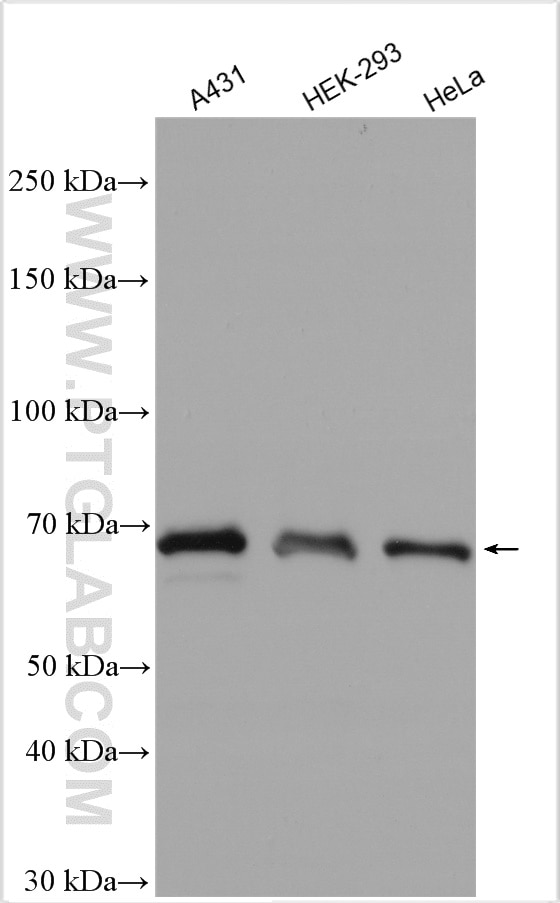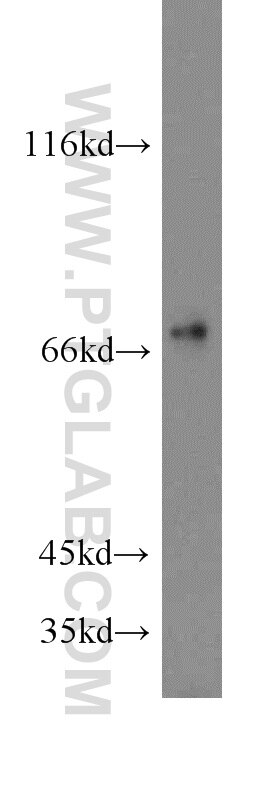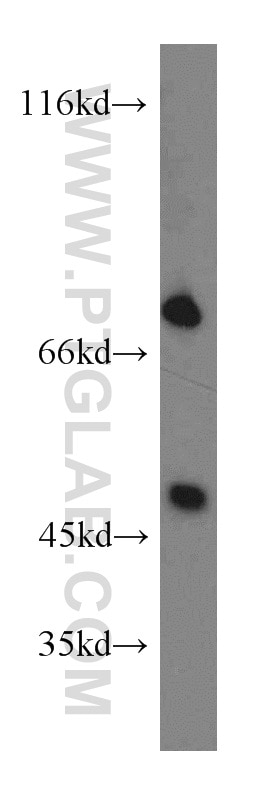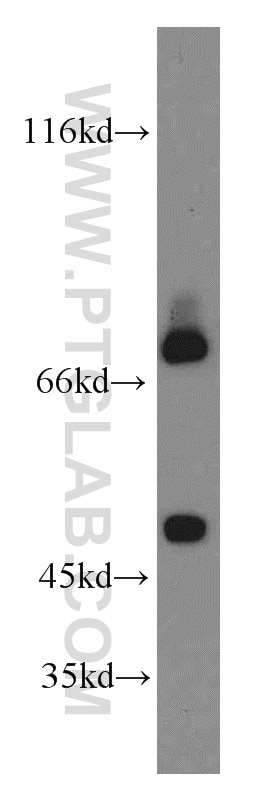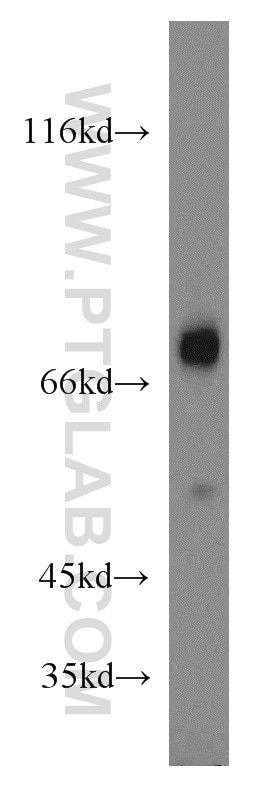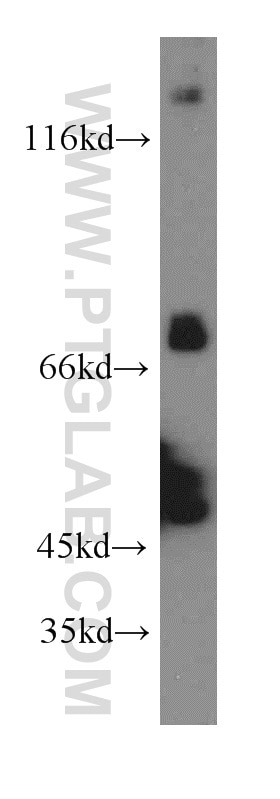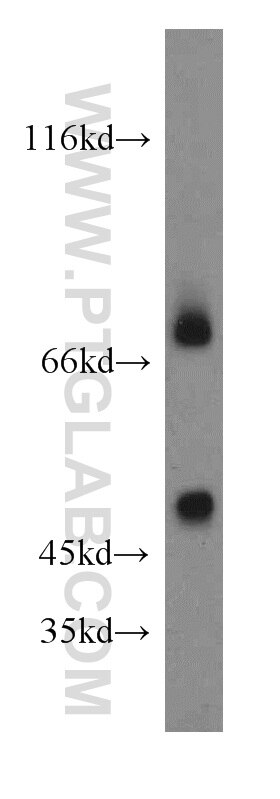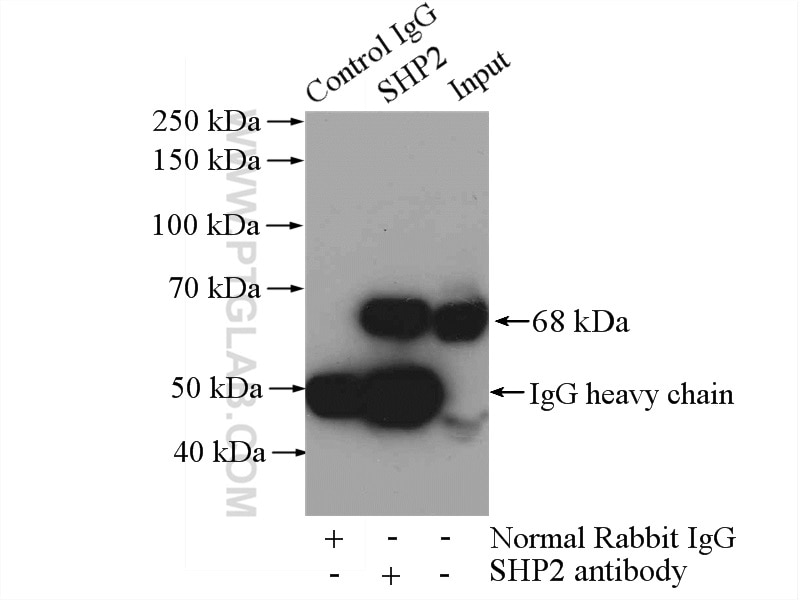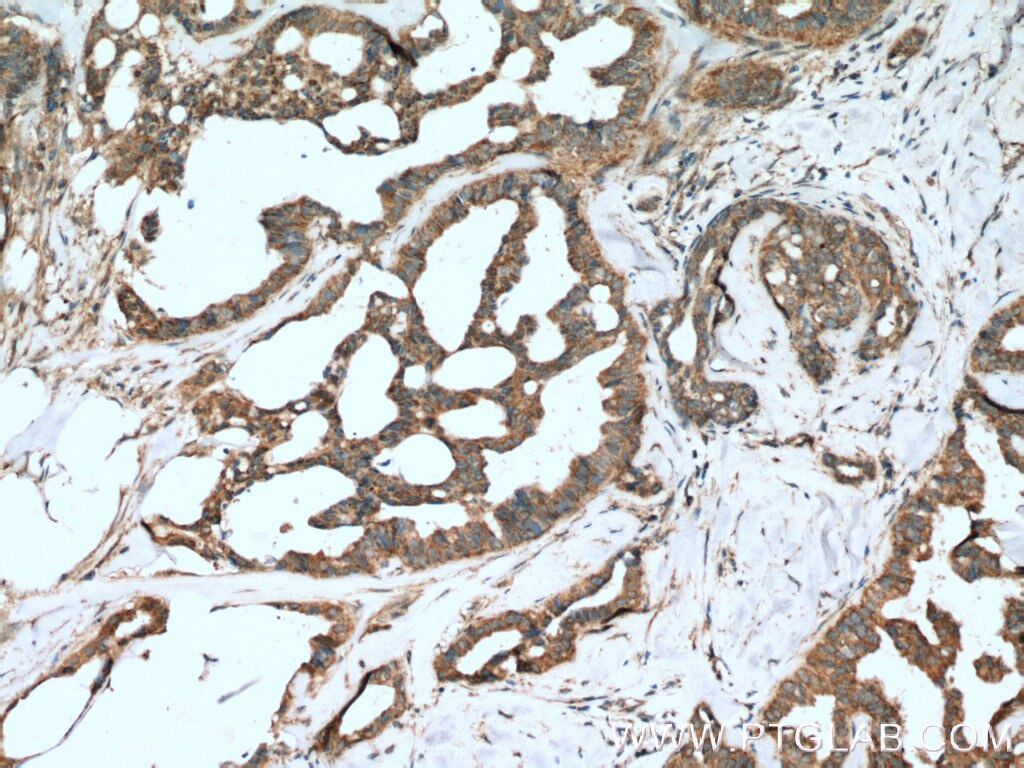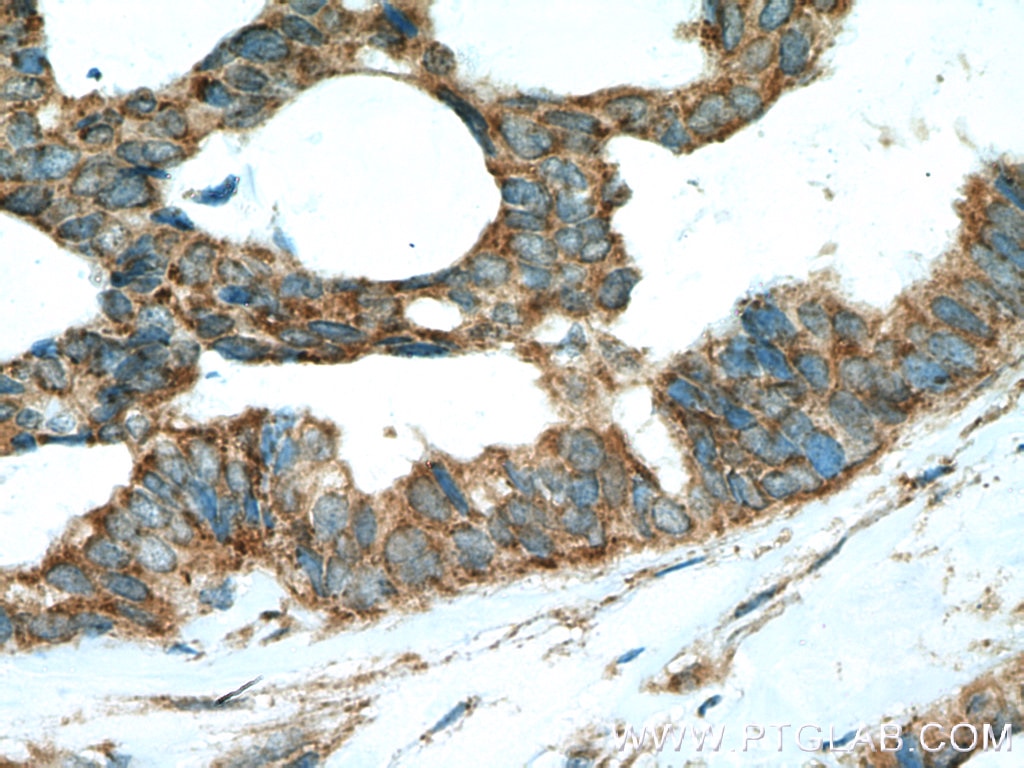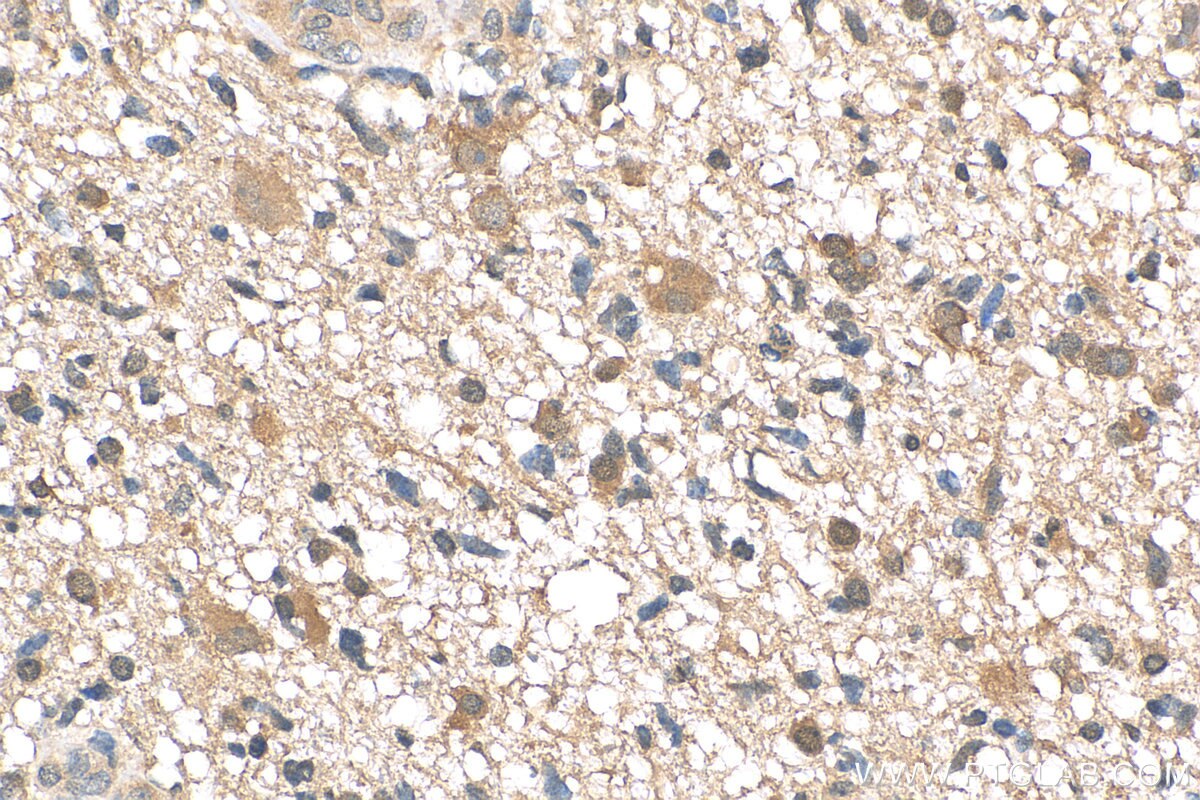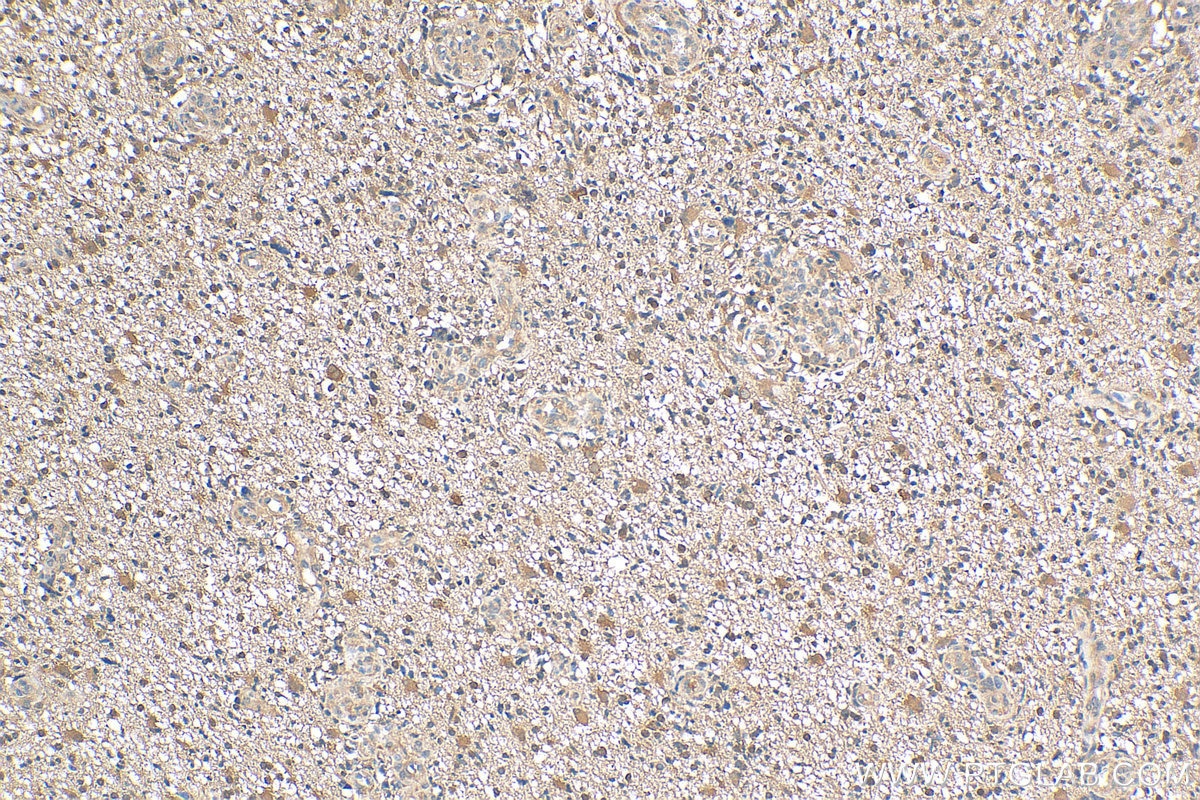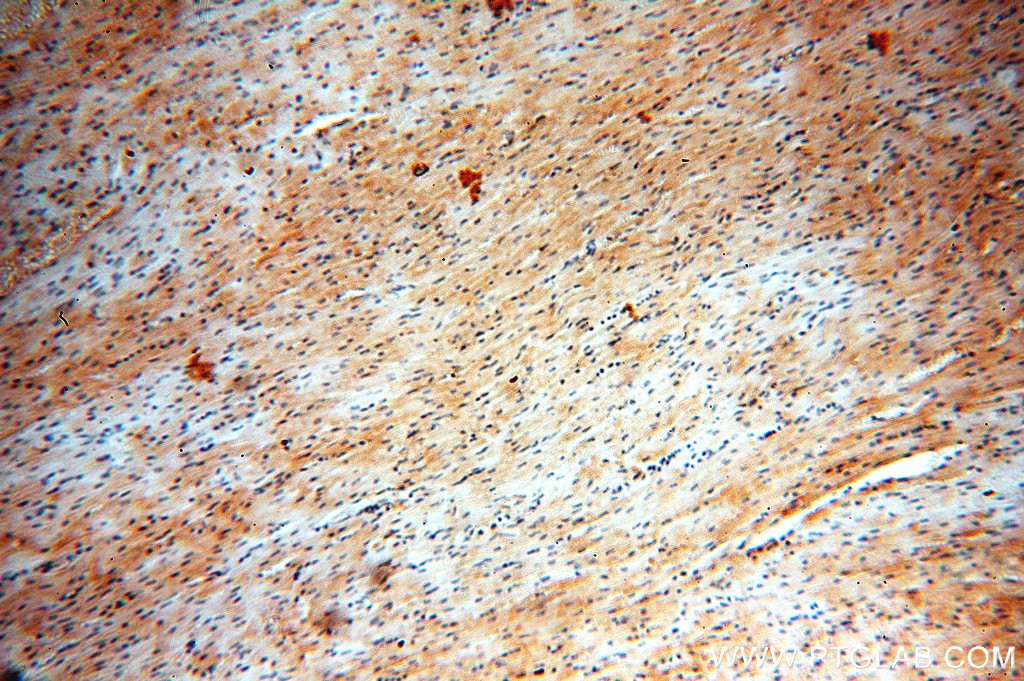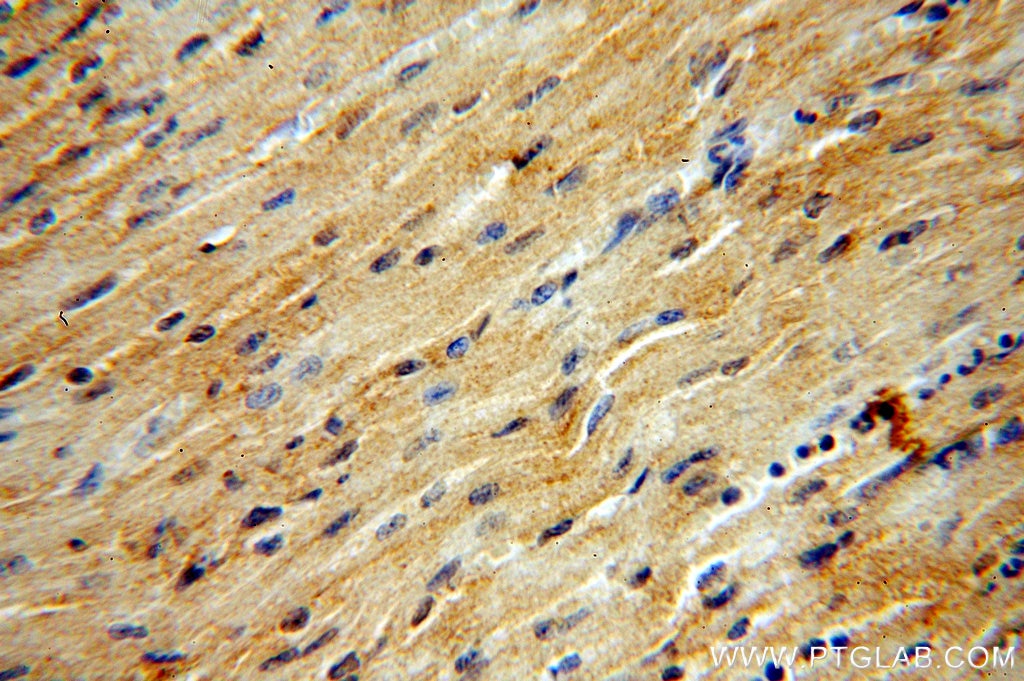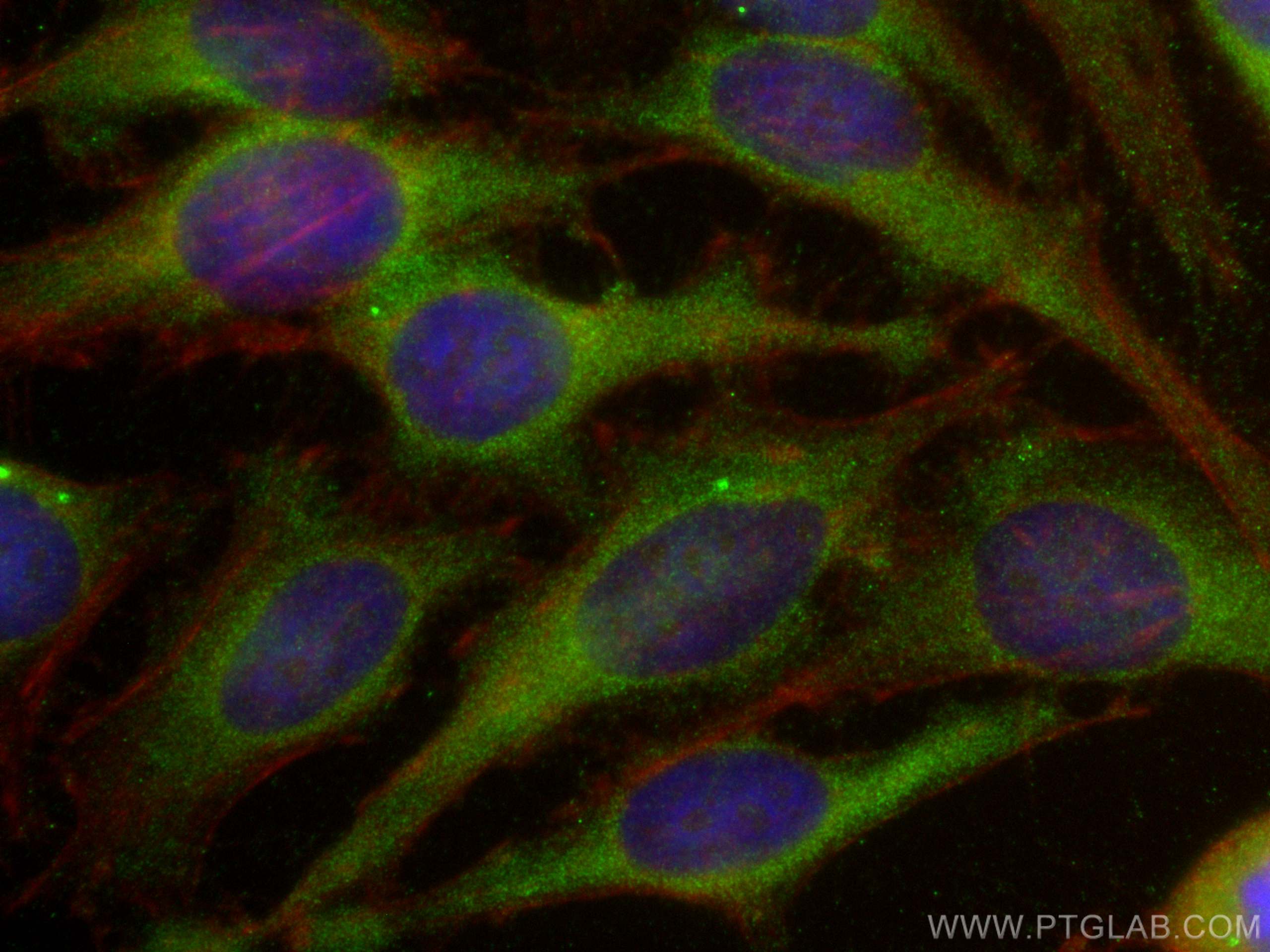- Featured Product
- KD/KO Validated
PTPN11/SHP2 Polyklonaler Antikörper
PTPN11/SHP2 Polyklonal Antikörper für IF, IHC, IP, WB, ELISA
Wirt / Isotyp
Kaninchen / IgG
Getestete Reaktivität
human, Maus, Ratte
Anwendung
WB, IP, IHC, IF, CoIP, Cell treatment, ELISA
Konjugation
Unkonjugiert
Kat-Nr. : 20145-1-AP
Synonyme
Galerie der Validierungsdaten
Geprüfte Anwendungen
| Erfolgreiche Detektion in WB | A431-Zellen, A549-Zellen, HEK-293-Zellen, HeLa-Zellen, humanes Herzgewebe, humanes Hirngewebe, Jurkat-Zellen, MCF-7-Zellen, NIH/3T3-Zellen, U-937-Zellen |
| Erfolgreiche IP | HEK-293-Zellen |
| Erfolgreiche Detektion in IHC | humanes Mammakarzinomgewebe, humanes Gliomgewebe, humanes Herzgewebe Hinweis: Antigendemaskierung mit TE-Puffer pH 9,0 empfohlen. (*) Wahlweise kann die Antigendemaskierung auch mit Citratpuffer pH 6,0 erfolgen. |
| Erfolgreiche Detektion in IF | HeLa-Zellen |
Empfohlene Verdünnung
| Anwendung | Verdünnung |
|---|---|
| Western Blot (WB) | WB : 1:1000-1:6000 |
| Immunpräzipitation (IP) | IP : 0.5-4.0 ug for 1.0-3.0 mg of total protein lysate |
| Immunhistochemie (IHC) | IHC : 1:100-1:400 |
| Immunfluoreszenz (IF) | IF : 1:200-1:800 |
| It is recommended that this reagent should be titrated in each testing system to obtain optimal results. | |
| Sample-dependent, check data in validation data gallery | |
Veröffentlichte Anwendungen
| KD/KO | See 3 publications below |
| WB | See 27 publications below |
| IHC | See 2 publications below |
| IF | See 2 publications below |
| IP | See 1 publications below |
| CoIP | See 1 publications below |
Produktinformation
20145-1-AP bindet in WB, IP, IHC, IF, CoIP, Cell treatment, ELISA PTPN11/SHP2 und zeigt Reaktivität mit human, Maus, Ratten
| Getestete Reaktivität | human, Maus, Ratte |
| In Publikationen genannte Reaktivität | human, Maus, Ratte |
| Wirt / Isotyp | Kaninchen / IgG |
| Klonalität | Polyklonal |
| Typ | Antikörper |
| Immunogen | PTPN11/SHP2 fusion protein Ag13660 |
| Vollständiger Name | protein tyrosine phosphatase, non-receptor type 11 |
| Berechnetes Molekulargewicht | 597 aa, 68 kDa |
| Beobachtetes Molekulargewicht | 68-75 kDa |
| GenBank-Zugangsnummer | BC008692 |
| Gene symbol | PTPN11 |
| Gene ID (NCBI) | 5781 |
| Konjugation | Unkonjugiert |
| Form | Liquid |
| Reinigungsmethode | Antigen-Affinitätsreinigung |
| Lagerungspuffer | PBS mit 0.02% Natriumazid und 50% Glycerin pH 7.3. |
| Lagerungsbedingungen | Bei -20°C lagern. Nach dem Versand ein Jahr lang stabil Aliquotieren ist bei -20oC Lagerung nicht notwendig. 20ul Größen enthalten 0,1% BSA. |
Hintergrundinformationen
PTPN11(protein tyrosine phosphatase, non-receptor type 11) is also named as PTP-1D, PTP2, PTP2C, PTP3, SHP2, CFC, CFC, BPTP3, SH-PTP2, SH-PTP3, MGC14433 and belongs to the protein-tyrosine phosphatase family and non-receptor class 2 subfamily. It modulates and regulates signaling through numerous pathways, many of which are active in the developing endocardial cushions and implicated the ERK pathway as a central mechanism(PMID:19017799). Its signaling may play equally important roles in retinal survival in both physiological and pathological conditions(PMID:21576358). Defects in PTPN11 are the cause of LEOPARD syndrome type 1 (LEOPARD1), Noonan syndrome type 1 (NS1), juvenile myelomonocytic leukemia (JMML) and metachondromatosis (MC). It has 3 isoforms produced by alternative splicing.
Protokolle
| Produktspezifische Protokolle | |
|---|---|
| WB protocol for PTPN11/SHP2 antibody 20145-1-AP | Protokoll herunterladen |
| IHC protocol for PTPN11/SHP2 antibody 20145-1-AP | Protokoll herunterladen |
| IF protocol for PTPN11/SHP2 antibody 20145-1-AP | Protokoll herunterladen |
| IP protocol for PTPN11/SHP2 antibody 20145-1-AP | Protokoll herunterladen |
| Standard-Protokolle | |
|---|---|
| Klicken Sie hier, um unsere Standardprotokolle anzuzeigen |
Publikationen
| Species | Application | Title |
|---|---|---|
Hepatology Shp2 promotes liver cancer stem cell expansion by augmenting β-catenin signaling and predicts chemotherapeutic response of patients.
| ||
Oncogene Overexpression of miR-489 derails mammary hierarchy structure and inhibits HER2/neu-induced tumorigenesis. | ||
Cell Chem Biol Cellular signals converge at the NOX2-SHP-2 axis to induce reductive carboxylation in cancer cells. | ||
Mol Ther Nucleic Acids miR-552 Regulates Liver Tumor-Initiating Cell Expansion and Sorafenib Resistance. | ||
Anal Chem Ionic Liquid-Based Extraction System for In-Depth Analysis of Membrane Protein Complexes. | ||
Aging (Albany NY) Glycochenodeoxycholic acid induces stemness and chemoresistance via the STAT3 signaling pathway in hepatocellular carcinoma cells. |
